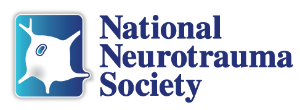Main Menu
Description & Objectives S06
SESSION TITLE
Targeting the Injury in the Injured Brain - Advanced Diagnostics and Treatment Methods Treatment
DESCRIPTION
Acute and sub-acute management of traumatic brain injury (TBI) poses a daunting challenge for the medical community, both for short-term functional recovery and for the often years long rehabilitation. Many patients with concussion histories report cognitive problems that are comorbid with persistent headaches and psychiatric conditions such as post-traumatic stress disorder (PTSD) and depression. Unfortunately, many conventional treatments for these conditions have not proven effective. This symposium will provide an introduction to neuromodulation techniques that hold significant promise for ameliorating many of the problems faced by TBI patients. First, Dr. Adamson will illustrate the efficacy of repetitive transcranial magnetic stimulation (rTMS) as a treatment for the executive function deficits seen in veterans with mild to moderate TBI (with a special emphasis on PTSD). Dr. Siddiqi will propose novel personalized targeting approaches based on the individualized identification of circuits associated with specific disorders, including depression, TBI and PTSD. Dr. Leung will review findings from recent neuroimaging studies assessing the mechanisms underlying the development of post-concussive headache, clinical and neuroimaging evidence supporting the use of rTMS in managing post-concussive headache, as well as other co-morbid symptoms. Dr. Monti will discuss severe TBI populations, describing preliminary efficacy and safety data from an innovative clinical trial where the cortico-thalamo-cortical mesocircuit is upregulated in patients surviving severe brain injury, via low intensity focused ultrasound pulsation (LIFUP). Finally, Dr. Coetzee will provide an overview of focused ultrasound as a useful tool for enhancing important functional capabilities in neurotrauma patients.
EDUCATIONAL OBJECTIVES
At the conclusion of this session, attendees will be able to:
- The challenges moderate TBI patients face, including cognitive deficits, chronic pain, and psychiatric conditions, and the difficulties providers and researchers face in providing effective treatments for such interconnected sets of symptoms.
- The recent advances in the neuromodulation technique of repetitive transcranial magnetic stimulation (rTMS), including the results of three recently completed randomized clinical trials and the demonstrated efficacy of rTMS for the treatment of executive function deficits, depression and persistent headache.
- The novel data already being produced by various ready-to-implement approaches to personalized targeting of rTMS, including individualization based on diagnostic classification, symptom profiles, structural MRI, and functional MRI.
- The concept of low intensity focused ultrasound pulsation (LIFUP), the advantages it may have over existing methods of neuromodulation, and how it can be applied to severe TBI for recovery of function as illustrated by results from a preliminary clinical trial study.
- The extent to which LIFUP may be useful for the treatment of mild and moderate TBI and what symptom clusters it may be well suited for.
- How to translate different innovative neuromodulation techniques, including accurate mapping for targeting, into efficacious treatments for different populations of TBI patients that present with a variety of symptom clusters.
